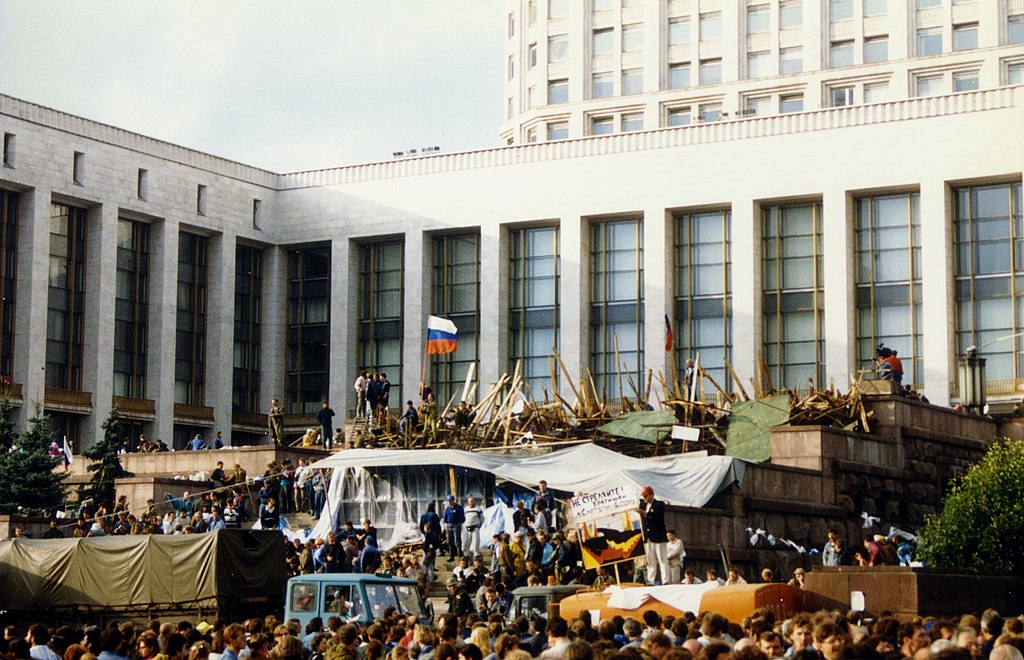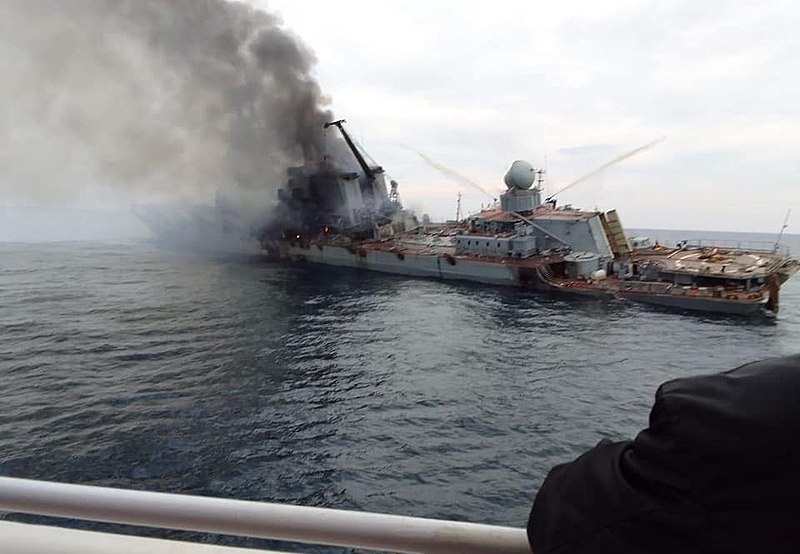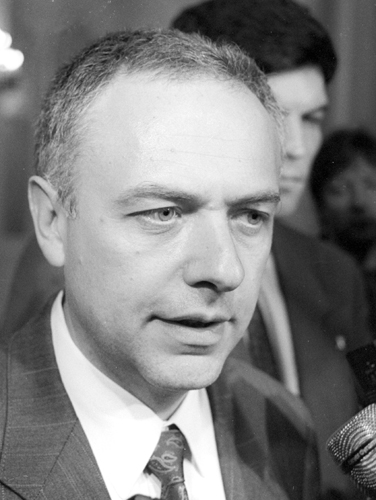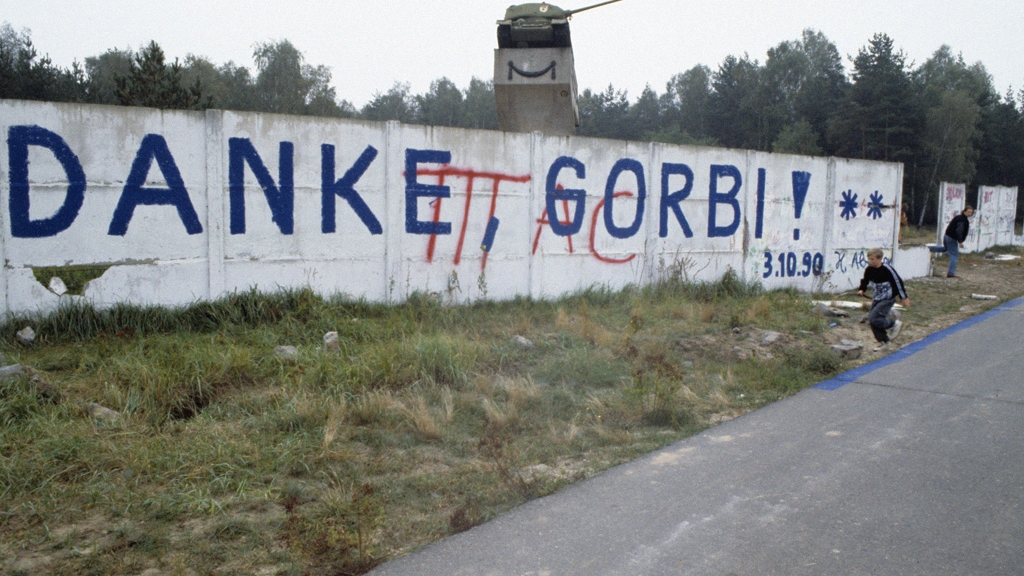The former foreign minister of Russia provides a unique look inside his country's leadership and reflects on the prospects for democracy there.
-
Spring 2022
Volume67Issue2

Editor’s Note: Andrei Kozyrev was foreign minister of Russia under President Boris Yeltsin from 1991 to 1996, and recently authored a remarkable inside history of the collapse of the Soviet Union, The Firebird: The Elusive Fate of Russian Democracy, from which portions of the following essay were adapted.
During the August 1991 coup attempt by hardliners against Mikhail Gorbachev, Mr. Kozyrev was present when tanks moved in to seize the Russian White House when President-elect Boris Yeltsin famously stood on a tank to address the crowd assembled. Kozyrev then departed to Paris to muster international support and, if needed, to form a Russian government-in-exile. He participated in the negotiations at Brezhnev’s former hunting lodge in Belarus where the leaders of Russia, Ukraine, and Belarus agreed to secede from the Soviet Union and form a Commonwealth of Independent States. Kozyrev’s pro-Western orientation made him an increasingly unpopular figure with Russian leaders and the ultra-wealthy oligarchs.
It was December 1991. I was in a hunting lodge deep in a vast forest, and I had to make a phone call that would change not just my life but the lives of millions. In a detail that might seem astonishing today — not least to younger readers — I had nothing more technologically sophisticated than an ordinary landline on which to make contact with a center of power that most of my fellow countrymen and women had viewed for decades as the enemy.
Sitting on the end of the phone looking at the pine-tree wilderness outside the window, I realized I was being put through, first to the White House in Washington, DC, and then to the president of the United States himself, George H. W. Bush.
I had two important pieces of news for Bush. The first was that his former Cold War opponent, the Soviet Union, was to be divided into twelve newly independent states. The second and equally crucial piece of information was that only Russia would inherit and control the Soviet nuclear missile capability, which even today could destroy America.
Like the baby boomers in the United States, my generation in Russia felt as if it had lived permanently on the brink of annihilation. For almost half a century, both sides in the Cold War had stockpiled nuclear arsenals in an equation that had earned itself the moniker of mutually assured destruction. The acronym — MAD — felt entirely appropriate.
Although about 4,860 miles separate Moscow and Washington, what happens in Russia remains vitally important for the United States (and consequently, for the rest of the world). Recent political analysis has overwhelmingly focused on Russia’s online influence. Yet it should not be forgotten that it remains a political big beast by sheer virtue of its geography, since it borders America and Japan by sea, and China, Central Asia, and Europe on land. The country also possesses tremendous wealth in natural resources and human talent that shore it up as a global player even when its economy underperforms.
When I made that phone call at the end of 1991, the death of the Cold War and the birth of a new democratic Russia seemed to promise a bright new future for both sides. That was my dream, at least. As Russia’s first foreign minister (1992 – 96) I was in a prime position to pursue it vigorously. Was I naive? Some critics have since made that allegation, but the truth is inevitably more complicated. I was not naive to be optimistic and I want to explain why. I have always been, to my core, a son of my homeland.
Yet even the greatest optimist has to concede that right now it is the challenges that are most painfully evident. Today it is hard to believe just how promising the initial contacts between the United States and the new Russia were. Presidents George H. W. Bush and Boris Yeltsin signed a declaration only a month after the birth of the new state that declared, “Russia and the United States do not regard each other as potential adversaries. From now on, the relationship will be characterized by friendship and partnership.” The document explicitly indicated the basis of this change: “a common commitment to democracy and economic freedom.”
Today, the United States and Russia are, I strongly believe, engaged in a renewed Cold War. Russian aggression toward America and NATO allies in cyberspace, its support of the old Soviet client regime Syria, and its military interventions in Ukraine and Georgia are loud and clear.

From my position, I witnessed the early rumblings in the Russian bureaucracy of growing hostility toward Russia’s new democratic order (or even disorder, as it often seemed at the time). The individuals and concepts (including acrimony toward NATO and a belief in Russia’s growing authoritarianism in contrast to the democratic West) behind that hostility are essentially at the heart of the US-Russian conflict today. I was convinced at the time that democratic reforms and pro-Western foreign policy were linked, and that if one were to fail, both would fail. Time would prove my assumption to be correct.
The Soviet legacy weighs on Russia’s foreign policy, which is in essence a continuation of Cold War stereotypes. The main sources of conflict are basically the same as those during the Soviet period that I sought to exclude from the new Russian foreign policy of the early 1990s: anti-Americanism, rejection of NATO and in particular of its enlargement, meddling in neighboring countries, and support of anti-Western authoritarian regimes all over the world from Cuba to Syria and North Korea.
For the Russian rulers, as for their Soviet predecessors, hostility to America and NATO provides critical justification for their power. When European nations, led by the United States, founded NATO on the principles of democracy, individual liberty, and the rule of law, they created a major multinational political pivot in modern history. Parting from centuries-old efforts to gain territory and domination, they found their national interests in peaceful cooperation and prosperity.
That’s why emerging democracies want to join NATO. And that’s why the totalitarian Soviet Union opposed it, and now authoritarian Russia along with undemocratic politicians elsewhere try to subvert it. Had there been no NATO enlargement, they would have found another pretext for anti-American and anti-Western propaganda. Even if NATO had dissolved itself, there would still be a Pentagon and a CIA that could be held up as the enemy.
The events of 2008 and 2014 and thereafter, when Russia waged so-called hybrid wars against Georgia and Ukraine, brought back memories of Stalin’s annexations of the Baltic states. They were essentially a reprise of the party of war’s stance I had confronted during the showdown in the Kremlin in the hot summer of 1992. The main difference now is that the perpetrators are not acting in conflict with the nascent democracy as they had in the early 1990s but as part and parcel of the belligerent authoritarian regime that embodies aggressive nationalism and militarism. Aggression, both covert and overt, became a means of holding on to power rather than seizing it.
Yet in recent years the same old-style Kremlin incursions into Crimea and eastern Ukraine came as a surprise to and have been heralded as something new by American and European governments, which were slow to recognize the uncomfortable reality of the resumption of the Cold War. Using old and new tools of subversion, including cyber and information warfare, against democracies in America and Europe and the aspiring democracies in Ukraine and Georgia, the Kremlin has unapologetically rushed down the path toward a new Cold War. But equally, it is desperately eager to stop the West from returning to the strategy of containment, which integrated political, informational, economic, and military means.

My career in the Soviet foreign ministry coincided with Ronald Reagan’s presidency, and I witnessed firsthand its effect on Kremlin leadership. Reagan made America, and indeed Washington-Moscow relations, great. He stood firm. First, he confronted the USSR politically as an “evil Empire” and backed these strong words with the deployment of Pershing II missiles to counterbalance Soviet SS-20 ballistic rockets, which the Kremlin advertised as unbeatable.
In response, the new communist leader Gorbachev signaled a pivot from threats to dialogue. Under pressure, he curbed not only aggression in Afghanistan but also the Soviet Union’s iron grip on Eastern European satellites. These changes opened the way for productive dialogue, and the two sides negotiated significant disarmament treaties. The Berlin Wall fell. Firmness proved effective.
In contrast, President Donald Trump avoided personally and directly criticizing the undemocratic nature of the Kremlin regime and its foreign policy. Serious observers regard Russian elections as a sham, designed to confirm the unalterable rule of the present political elite. One of the two major opposition leaders, Boris Nemtsov, was killed in front of the Kremlin; the other, Alexei Navalny, has been locked up many times and is excluded from the list of candidates in any elections.
Brandishing a nuclear stick, the Kremlin is betting on boosting its fading image. The country’s economy has stagnated and is now less than one-tenth the size of that of the United States; despite this, the Kremlin claims to be talking to Washington from a position of strength. If, under communism, the Kremlin’s slogan was “Proletarians of all countries unite!” today it would be “Autocrats everywhere: follow me against the free world!”
The favorite canard of the Kremlin apologists and their Western friends is that America humiliated Russia after the demise of the Soviet Union, and NATO expansion broke the naive hope of the early Yeltsin administration to overcome the Cold War animosity of the West toward Russia. That is a distortion. The Clinton administration did fail to give Yeltsin sufficient help in making the transition to a free-market economy and to properly engage with him on crucial foreign policy issues, particularly that of NATO enlargement. Yet Washington was far from humiliating or rejecting Moscow.
On the whole, the United States and the West provided considerable economic and political assistance to Russia and offered the former adversary a partnership with NATO, based on shared democratic values. Moscow rejected this and turned its back on the partnership, using as a pretext the mistakes made by certain politicians and diplomats in Washington.
Some say that Russians are different from Europeans and inherently antagonistic to democracy. This denigrating characterization is promulgated by Moscow propagandists who deliberately conceal it under the guise of Russia’s “own and separate path,” which they claim the country should follow. They like to accuse the West of Russophobia as an alleged explanation for the sanctions imposed on Russia, despite the fact that the sanctions were a response to military incursion in Ukraine and other unlawful international acts. In fact, those very claims about Russia’s “own and separate path” and assertions that other nations hate Russians are what epitomize the worst Russophobia.
The path of democracy is chosen not only by European countries but also by growing numbers of other countries on all continents, none of which have lost their unique identities, languages, or cultures. On the contrary, freedom and the rule of law boost national pride and prosperity, and cooperation with peers benefits those peoples even more.
Russians are in no way inferior to other peoples. It is the autocratic regime and its aggressive foreign policy that make Russia an outcast among most developed countries. In fact, Russian culture and self-identity have always been attached to Europe.
A dream of someday “living like other people” is deep-seated in the Russian soul. And those model relatives are not — with respect — Asian or African but European, the same Europeans who live in democracies that enjoy better standards of living. The Janus-faced Russian elite has chosen the Western universe as a safe and comfortable haven for their money and their families. The Kremlin kingdom is divided against itself.
The regime is aware of that. Instead of the Soviet claim of superiority, it is guided by an inferiority complex relative to the more prosperous West, though it still takes every opportunity to denigrate the West. It also uses the old tools of anti-American foreign policy and propaganda, fostering in the Russian people a false sense of a besieged homeland. Today the interests of the regime more than ever contradict the real national interest of Russia. The latter consists of catching up with the other European nations that after the Second World War rejected outdated historical interpretations of their national interests.
For example, Germany and France dropped the quest for superiority and other territories in Europe. Instead, like other European states, they found that their national interest lay in building cooperation and open societies. The new democracies in the former Soviet-dominated central European states followed suit. Sooner or later, Russia will do the same. I have once witnessed the Russian people rise up for democracy.
It happened at the end of the 1980s when they elected Yeltsin and many democratically minded representatives to parliament with the popular mandate to introduce European-style reforms. They stood in a living wall around the Russian White House in August 1991 against tanks and won. On the shoulders of that victory Russia successfully pursued its real national interest of cooperation with neighboring and most developed countries, first of all America, in the early 1990s.

I am proud of that policy and of the fact that it still exists in the national memory as a promise for the future. In that context I feel some sense that I am on the right side of history whenever one of today’s Kremlin rulers attacks me and my concept of national interest. Almost twenty-five years have passed, yet they are still haunted by that experience and we fear its return.
The freedom Russians wanted and fought for in the early 1990s has subsequently been sneered at as a fairy tale invented by delusional democrats. As one of those democrats, I chased that aspiration. Maybe it was a fantasy. But I have no regrets.
The Russian quest for a better world is real. Russian democracy has arisen many times — in 1905, 1917, and 1991. Sooner or later the Russian people will rise up again and reclaim the Russia they deserve.

